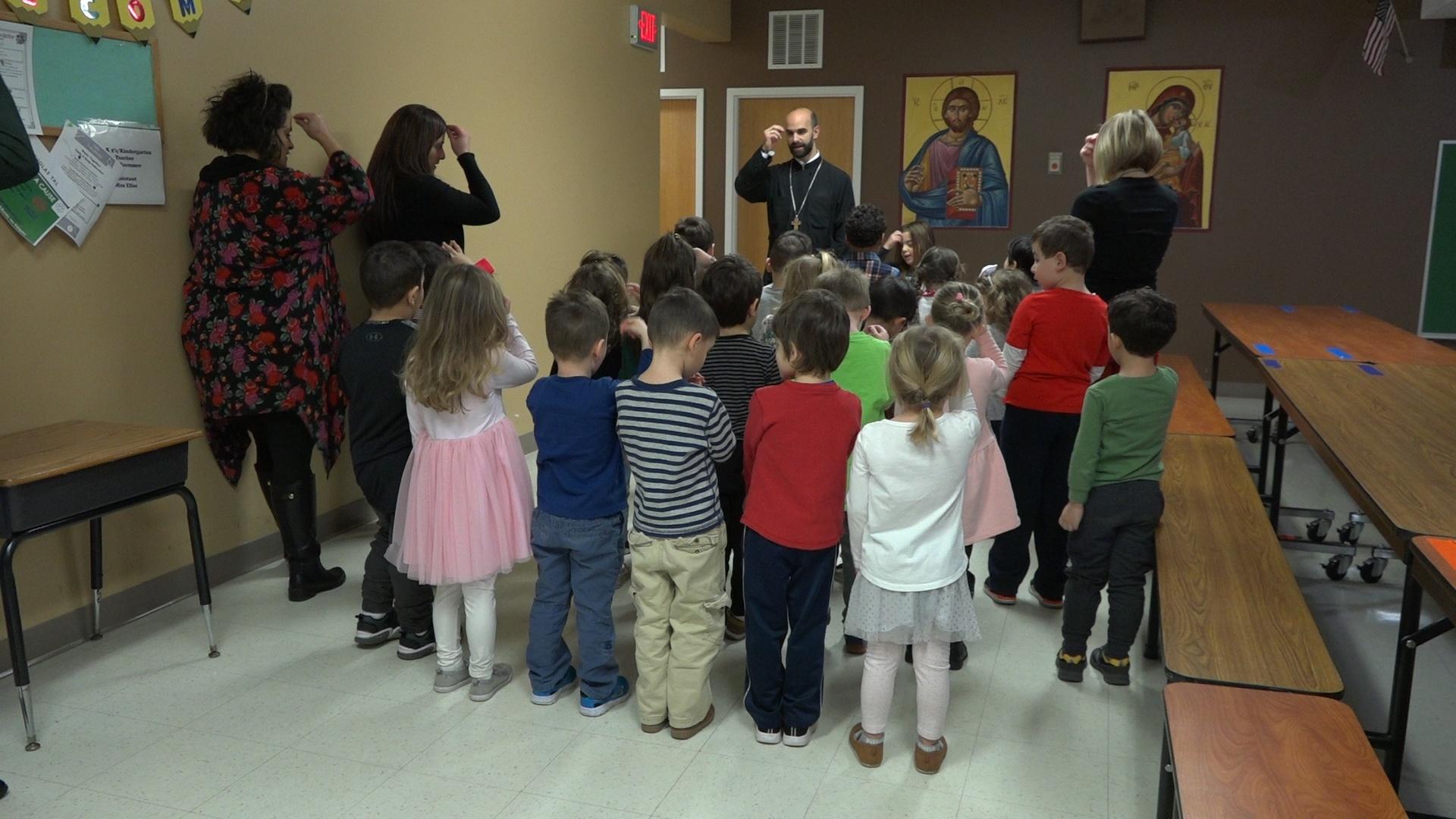BETHLEHEM, Pa. (WLVT) - At St. Nicholas Academy, you can tell when school starts. Dozens of preschoolers gather with their teachers, standing in front of a wall with images of the Virgin Mary and St. Nicholas.
Time for reflection, prayer and song kick off every morning.
"In the name of the Father, Son, and Holy Spirit...”
For 20 years, the preschool in Bethlehem has offered Christian Orthodox education at St. Nicholas Greek Orthodox Cathedral. Now, there’s a plan to start a new school with the same type of education.
"Kids go off and spend the majority of their time with peers in a school environment," said assistant priest Father Alexandros Petrides, "and, for us, who those people are, who the teachers are, and what they're being taught is an important part of their identity."
St. Constantine School of Lehigh Valley - a collaboration among the region's six Orthodox jurisdictions - would teach students from kindergarten through twelfth grade from what’s called a "classical education model."
"Students aren't learning to make a living. The goal is not my job. I'm learning to make a life. The goal is my life," said school president Dr. Gary "Cyril" Jenkins. "It's greater than just what I do 9 to 5. It's what I do after 9 to 5. That's what we're really aiming at."
The model is based on grammar, logic and rhetoric. Students would continue to learn subjects like math and literature, but they’d also pick up languages like Latin, French and Greek. Board members say what sets a classical school apart from the rest is how each subject is taught.
"[It's] thinking how to look about the world around you," explained board member Leeanna Egnor, who's the executive director of an Emmaus-based college planning organization called CAP of PA (College Aid Professionals). "If I make a decision, what are the ramifications? It's not just 'Answer the mathematical equations.' It's 'Answer the mathematical equations,' and then, 'What does that solve?'"
"The classical curriculum is basically saying, 'What are those thoughts that we're always thinking? What is that that's in our soul all the time? Is it just the song we hear in the morning? Or is it the literature that we're reading, the friendships that we make and that we cultivate?'" Jenkins added. "Ultimately, classical education is the cultivation of the heart, of the student, of the soul."
"A classical model with us is just in such accordance with the virtues that we teach as Christians," Petrides said, "and so, focusing on these ancient human integral parts of of education help with that."
While students at St. Constantine will receive letter grades, advocates of the classical education model say that's not the point.
"Students shouldn’t learn for the grade," Jenkins said. "They should learn for the sake of learning, and that's what we want to instill."
"The fear of failure sometimes gets stripped away when I'm just not learning to get the grade on the score of the test," Egnor said. "It comes to, 'What is my overall grade in the class? Am I actually learning what I'm being taught, not just a regurgitation of data?'"
The goal is to open St. Constantine next fall, but right now, the board is asking for feedback through an online survey. While the school will include the Orthodox faith in its education, students are welcome from any religious background.
"This is more than a faith school," Petrides said. "This is a school that everyone can come to and learn the virtuous and joyful experience of education.”
The school will analyze the survey results next month and then look at possible locations, tuition, and fundraising.
To fill out the survey, click HERE.




